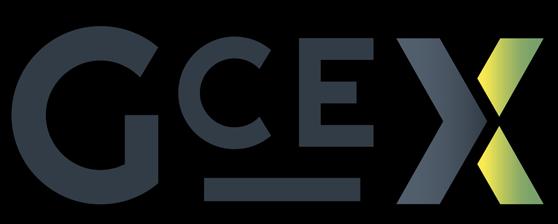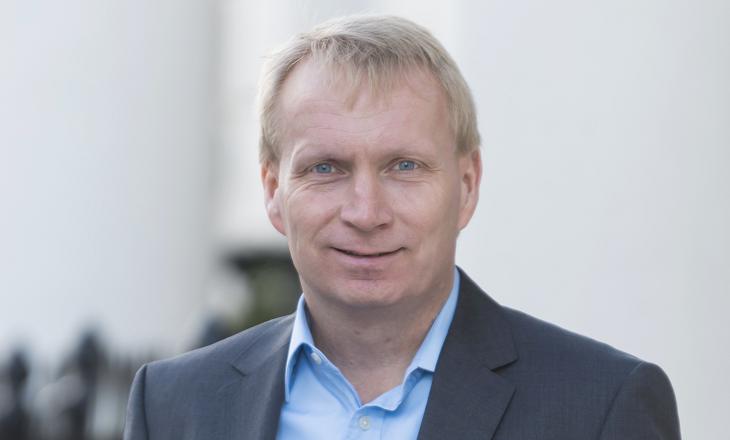
5 minute read
Game Changers issue 25
by PaulGC
LARS HOLST Founder and CEO of GCEX
Lars Holst CEO & Founder of GCEX
Advertisement

Q It’s fair to say that you started off in a different era of FX with Midas as an account executive. How was it in FX back then?
Surprisingly when I started at Midas, FX was only a very small component of my work, with the majority of my focus being on phone trading futures and options and only then much later CFDs on equities. You must bear in mind that during the latter years of the nineties and early noughties, it was quite a novelty to trade online and the market itself was certainly more fragmented than it is today. Commissions were, of course higher per unit but yet we were still much cheaper than the banks, a strategy which worked well both for Midas and their clients.
GAME CHANGERS Issue #25 The FX landscape in particular was a very different beast. Mostly phone based and less via the e-channels we take for granted today. Leads were primarily generated from the Yellow Pages and other phonebooks. Yes, physical hard copy phonebooks. The default EURUSD spread was 5 pips (as an example) but volume was lower as well, and any platforms used were pretty basic. FX brokers to a large extent were not regulated and the opening account process was relatively easy, I guess similar to what we are witnessing in the crypto market today….
Q What qualities made you stand out as a leading account manager?
I am not sure I stood out from the crowd that much. Yes, I consciously made an ongoing effort to add to my knowledge and exhibit what I know, however I was incredibly fortunate to have worked alongside colleagues all of which shared a passion to work hard and assist one another. This inevitably led to me to be given management responsibilities quite early on in my career, and I tried to lead by example and focus more on creating overall success for the combined team.
Q Midas become Saxo Bank in 2001, it was the start of the online boom for FX. Could you see from there where the industry would go?
Ha! Certainly, do not believe anyone that says YES to that question!
I myself couldn’t see it at the time, but as a team we definitely had the sense and belief that we could disrupt the market, and fortunately we did big time…
Q Why did you start CFH?
After spending a number of years at Tier 1 banks, I came to the realisation that my attributes were better suited towards those start-ups and companies which encouraged and thrived within faster pace environments. So, I eventually left and proceeded to co-found CFH. Q As a start-up LP, how did you sell your vision to your potential clients?
It was incredibly hard work!
Some old “friends” naturally questioned the feasibility of ideas and thoughts, but we eventually prevailed and that was ultimately down to having the right team and the correct attitude to selling our vision. As you know yourself there are always ways to do things better, always. All companies eventually slow down after their initial growth phase. Technologies stacks begin to get outdated, new ideas take increasingly longer to execute, and then it all just becomes routine. Then all of sudden there is this new kid on the block. The story just built from there.
Q What’s it like letting go of a brand that you put so much time and energy into?
To be honest it is very tough initially.
I started on my own in London and hired the team and unexpectedly they quickly became more than just my colleagues. However, as you move from being a small start-up team and as new owners come in with their own ideas and you realise that perhaps it’s time to move on to the next chapter.

I think that depends on the type of company and at what stage of the life cycle the company is at.
Q Is there a different type of leader when it comes to a start-up and an established brand?
Absolutely. In a start-up it’s very hands on where as a leader you need to know every aspect of the business, from accounting to HR and even more so your own Senior Managers Regime, as you are unable to delegate most tasks simply due to lack of resource. It certainly takes a particular type of person and is not easy, but I personally find the challenge a lot of fun and exciting to ultimately build a business from scratch.
Q Why do you think people follow you as a leader?
No idea, and I’m still trying to figure it out… I try to lead by example and I try to listen but you will receive a better response by asking some of my colleagues instead of me. Personally, I think the market mimics that of FX twenty years ago. Regulation is inevitable and the underlaying technology will get better to actually serve a ‘real-world’ purpose, allowing the market to then self-correct over time.
Q Do you believe that the derivative Crypto market will challenge the derivative FX retail space in the next decade?
No not the current generation of exchange tokens, however the next generation of STOs in particular could potentially challenge the FX retail space. I guess ultimately time will tell.
Q Why is it so important for an FX brokerage to incorporate a crypto feed in 2020. Are the price fluctuations still too dangerous to take on?
If a client is able to trade TRY or oil, then I am confident they should also have the facilities with which to trade BTC, but it is still dangerous and every provider does have a responsibility to ensure that products they offer are indeed appropriate for their clients.
Q You have now started GCEX, what makes this so different from other brands?
We have the best team, the best ideas and we know how to execute, simple.
Q Digital and crypto’s has come in for a lot of criticism, what do you believe must happen to clean up this field?

Q What plans do you have for GCEX in 2020?
World domination! It’s a bit early in our development to share too many details, nevertheless we do expect exponential growth throughout 2020 as all of the pieces from the puzzle fall into place. The implementation and execution of the GCEX strategy will be key, and its down to us as a team to ensure it is done correctly.










